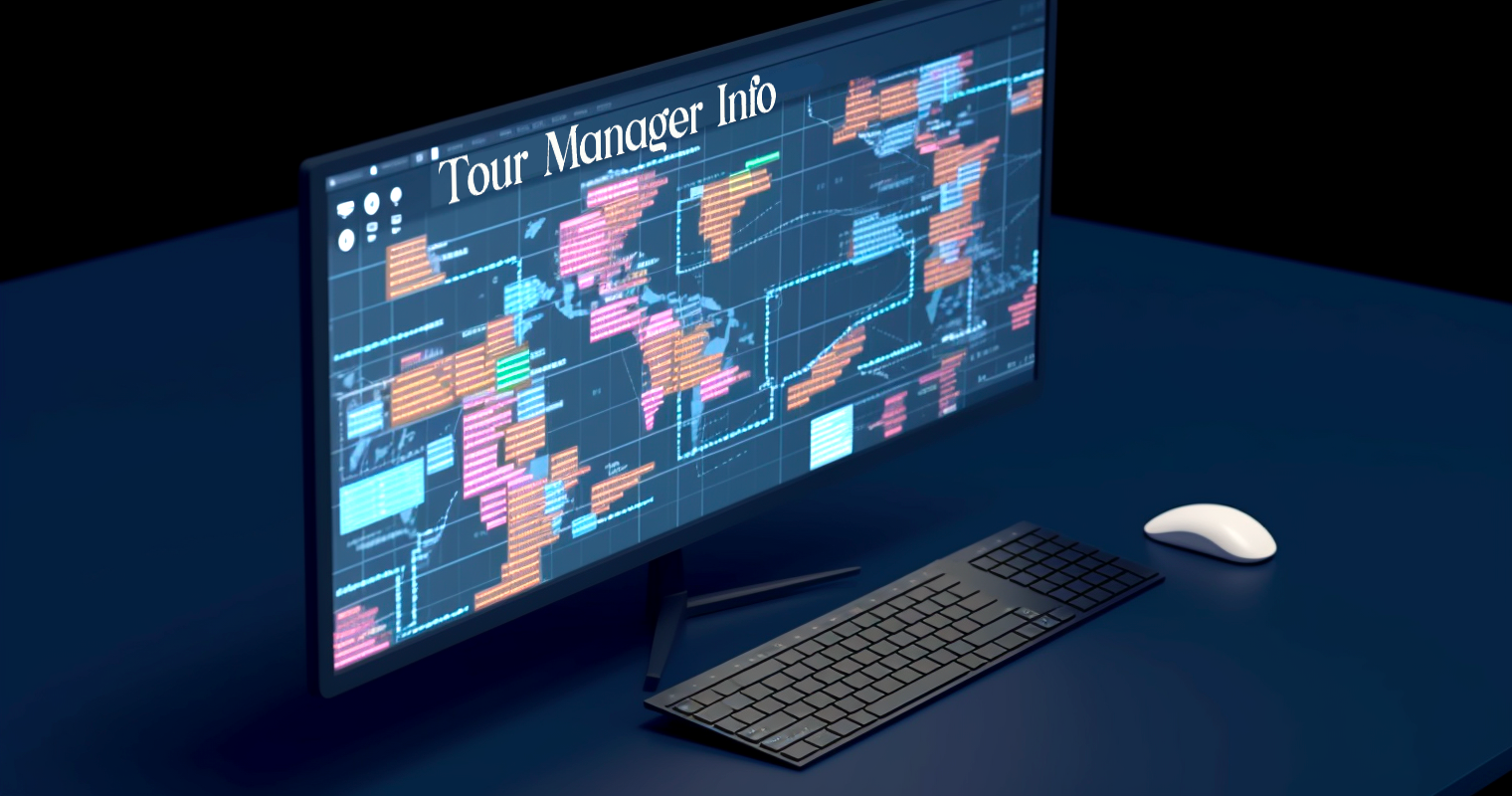Choosing the right tour management software for your concert tour is an important decision that requires careful consideration.
From the very beginning of the tour planning process, a tour manager has to determine the most efficient way to organize and deliver information to their team.
Learning to utilize tour management applications effectively can help to improve coordination, organization, and communication throughout the tour.
What is Tour Management Software?
Tour management software is a specialized type of software used to help manage aspects of a concert tour, from scheduling and logistics to hospitality and finances.
It can help to streamline common processes and improve the overall efficiency and operations of a tour.
These tools are used by tour managers, production teams, and other stakeholders involved in organizing a concert tour.
What are the Benefits of Using Software for Tour Management?
There are a number of benefits to using a tool that is specialized for the live music business.
Some of these include streamlining communication, improving organization, better time management, and reducing errors.
Tour management involves a lot of task juggling, and you’re often pulled in multiple different directions at once.
Having systems in place that help to reduce the amount of time spent on redundant tasks frees you up to deal with what actually needs attention.
Challenges of Using New Touring Apps
The most challenging aspect of using a new touring app is onboarding new users.
If a user can’t easily log on and navigate the app intuitively, it has a high likelihood of failing.
Introducing new tools that deviate from what is familiar can often be met with resistance to change.
Another potential challenge is data migration from an old system to a new system.
If a touring organization has been using the same tools for a number of years, who wants to start at zero and lose all of their record keeping?
Trying to navigate a new workflow mid-tour cycle is arguably not the best time to try out a new system.
The age-old adage if it works, don’t fix it, has a lot of virtue, to a point.
Before introducing any new tools, have a conversation with your team to understand what is and isn’t working.
Make sure the touring team has the support they need when introducing any new tools.
What Should Tour Managers Look For in a Touring App?
When evaluating touring software options it’s important to consider cost, scalability, user interface, and customer support.
If you’re working with a developing artist, the cost of software can very much be a limiting factor in what you implement.
In that same breath, if the artist you are working with starts to take off, you want to have a solution that is scalable based on your needs.
As mentioned above, it’s important that the app is intuitive and easy for your team to use.
A touring app should improve team communication and not hinder it.
It’s important to consider whether the app offers any kind of integration with systems that your team is already using.
This could make for an easier onboarding process for all involved.
Another consideration is security and data protection.
A tour manager is often dealing with sensitive information that could materially impact the safety of the artist, band, and crew.
How Much Does Music Tour Management Software Cost?
The cost of tour management tools varies based on the platform and use case.
The most common payment structure is a subscription-based model.
Usually, there is a monthly fee for admin permissions, and then any users can be onboarded for free.
If you have multiple people needing admin access, the costs will scale up from there.
There is often a differentiation in pricing and features when comparing desktop and mobile versions.
Who Pays For Tour Management Software?
Generally, the artist you are working for will pay for any touring apps utilized for the tour.
If you are a tour manager who is working for multiple artists, sometimes they will put the charge on their personal card, and bill back accordingly.
Tour directors will often have multiple tours running concurrently and will either eat the cost or distribute it proportionally.
Some services offer discounted yearly rates, versus a recurring monthly payment.
If the artist you are working for is not actively touring, make sure to cancel any recurring payments until you need it again.
Examples of Tour Management Software
There are a growing number of tour management software solutions entering the marketplace.
Many of these products share commonalities in the problems they help to solve, but their implementation, user interface, and features vary greatly.
Common features include customizable itineraries, logistics management, advance templates, and more.
It’s a good idea to spend time with different products to see what may or may not work for your touring organization.
Most of the below companies will offer some type of free trial period.
Talk to your touring peers and ask for honest feedback about their experience with different TM software.
Tour Management Apps
Niche Solutions
Merchandise Management
File Sharing & Organization
Group Communication
Additional Resources
The following products are not specifically billed as tour management software, but they operate in a similar ecosphere.
There is a lot of potential for collaboration and cross-pollination between different platforms.
It will be interesting to see how tour management applications evolve in the coming years with the advent of artificial intelligence.
Artist & Business Management
Venue Management
Festival Management
Project Management Software
Gear Inventory
Trailer Packs
Conclusion
Keep in mind that while software serves as a valuable aid in managing a tour, it is not the end all be all.
The ultimate success of a tour is heavily reliant on the abilities, experience, and commitment of both the tour manager and the entire team.
When the right software is paired with a dedicated team, it can set the stage for a tour that is well-coordinated, efficient, and ultimately successful.
